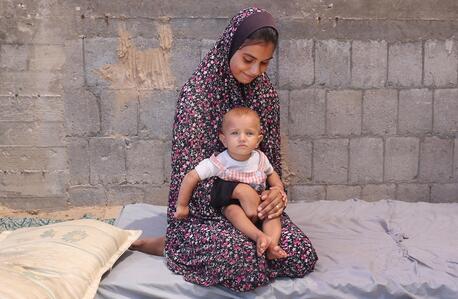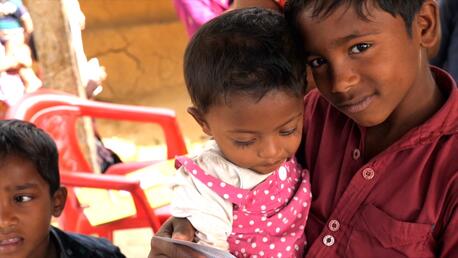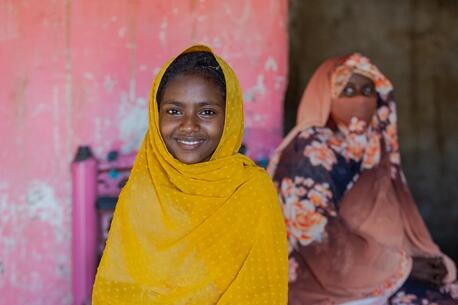
Safe Water, Better Lives in Sudan
A UNICEF-rehabilitated system brings clean, safe water to households in rural Alsabaat, Kassala state, Sudan.
Access to safe water changes lives
Fatima painfully recalls life without water.
“We bathed our children once a week, drank and cooked with dirty water, our children were ill, our barrels empty and dry and our children in search of water instead of attending school,” she said.
Fatima's granddaughter, 12-year-old Shaimaa, remembers those days clearly. “We arrived late to school and got punished. At home, we lacked water for washing, cleaning dishes and the house was dirty.”
For over two decades, this was the life of Fatima, Shaimaa and more than 7,000 people (60 percent children) in the remote community of Alsabaat and neighboring villages. Until recently, these communities close to the River Atbara in Kassala state, Sudan relied on a nearby canal as their only source of water.
The canal that stretches over 50 miles from Khasmelgirba Dam contains unsafe water mixed with algae, clearly unhealthy for consumption. People use it to wash clothes and bathe, while animals wander and drink in it, underscoring the risks it posed for the people.
Watch the video:
“Collecting water those days began with clearing the algae, and in the rainy season, we waited for the mud to settle before using it,” recalled one of the elders. Many remember the numerous children who drowned as they tried to fetch water from the deep canal.
“It was the only water source in the village from which both humans and animals drank,” Ibrahim, a community leader, added. “Many times, we found dead animals in the water stream.”
Many times, we found dead animals in the water stream. — Ibrahim, community leader
For this community, there was no alternative water source until UNICEF, with support from the global thematic fund, rehabilitated a water treatment plant providing sufficient clean and safe water.
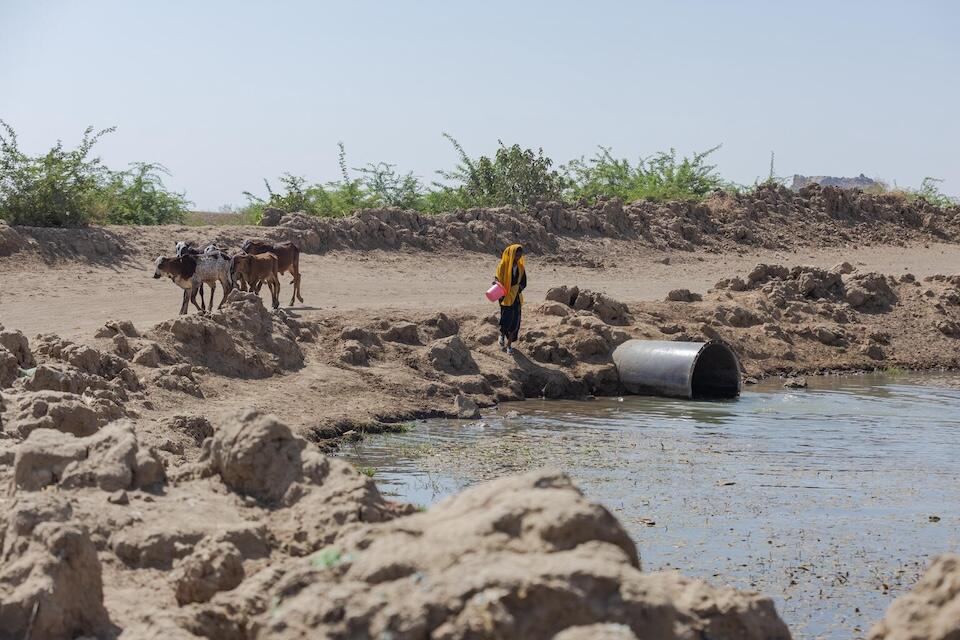
A new, solarized water treatment plant provides safe water for drinking and cooking, close to home
The new solarized water treatment plant produces 15 cubic meters per hour for an average of 10 working hours a day, pumping water from the canal, channeling it through slow sand filters, then to a large ground tank and into an elevated tank, where it is then pumped to the household level. The latter is a community initiative that has ensured the water is as close to the homes as possible.
Today, the water point is right behind Shaimaa’s house, something she is delighted about.
“Clean water means everything to me,” she said.
Clean water means everything to me. — Shaimaa, 12
Easy access to safe water close to homes and schools also means children can spend time playing and learning in dignified environments.
The eldest in her family, Shaimaa has shouldered the burden of searching for and collecting water for her family all her life. A few yards from her house, water is flowing. In her family kitchen, the large containers are filled with water, enough to drink and cook. And it is clean.
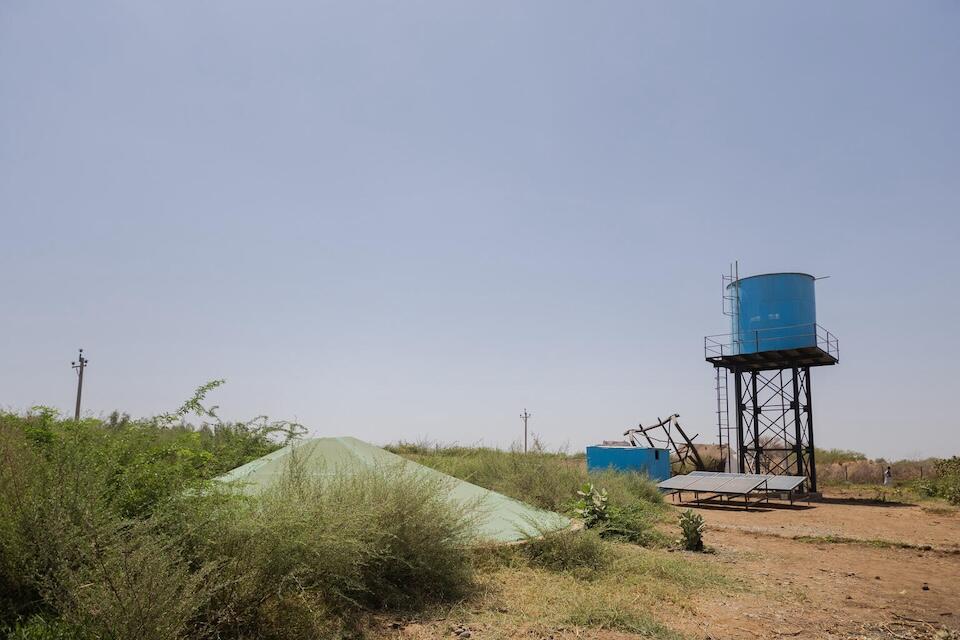
Time once spent collecting water is now time for learning and playing
In another corner, a group of children collects water and wets their foreheads to cool off under the scorching sun.
“Our lives have greatly improved,” Shaimaa said.” “Life has become better.”
Shaimaa and her peers continue to enjoy the benefits of not having to collect water every day. “In the past we could not play,” she said.
When our children return home, all the barrels are filled with water for them to bathe whenever they want. They now have time to study and play. — Fatima, Shaimaa's grandmother
Fatima can’t hide her excitement. “We have never drunk directly from the tap, showered or filled our barrels this way before. When our children return home, all the barrels are filled with water for them to bathe whenever they want. They now have time to study and play. Before, they didn't have time.”
With extreme weather events such as droughts and heat waves so common in Sudan, many communities are water-stressed. With limited water at household level, hygiene practices like handwashing are also compromised, exposing families to hygiene-related diseases. UNICEF and partners are expanding clean water supply through similar projects in five additional communities, benefitting approximately 15,000 people.
In addition to providing clean water sources, UNICEF also ensures community members are trained on the management of the facilities and continuous water quality checks and chlorination to prevent contamination.
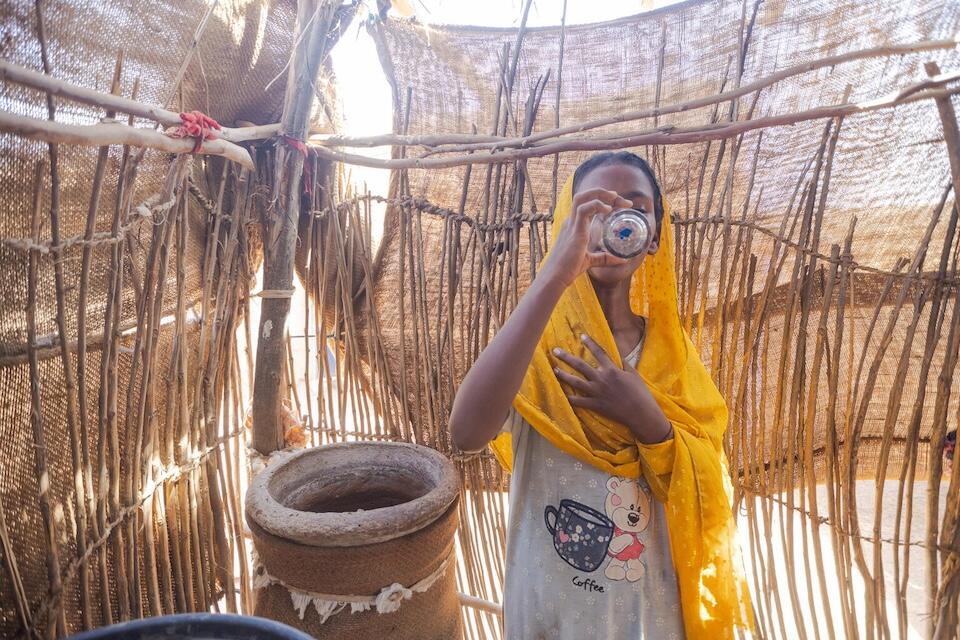
UNICEF’s water, sanitation and hygiene (WASH) support in Alsabaat is part of the Mother and Child Cash Transfer plus (MCCT+) interventions that include unconditional cash grants for pregnant women and lactating mothers as well as linkages to critical health services including safe water and proper sanitation practices for optimal growth and development of children during their first 1,000 days.
Learn more about UNICEF's critical WASH support for children and families around the world.
UNICEF won't stop until every child has access to safe water, sanitation and hygiene. Please donate.
This story first appeared on unicef.org
HOW TO HELP
There are many ways to make a difference
War, famine, poverty, natural disasters — threats to the world's children keep coming. But UNICEF won't stop working to keep children healthy and safe.
UNICEF works in over 190 countries and territories — more places than any other children's organization. UNICEF has the world's largest humanitarian warehouse and, when disaster strikes, can get supplies almost anywhere within 72 hours. Constantly innovating, always advocating for a better world for children, UNICEF works to ensure that every child can grow up healthy, educated, protected and respected.
Would you like to help give all children the opportunity to reach their full potential? There are many ways to get involved.




